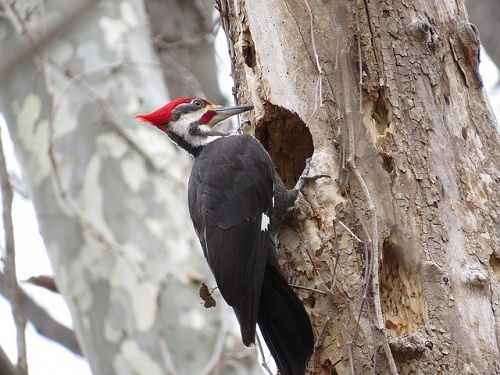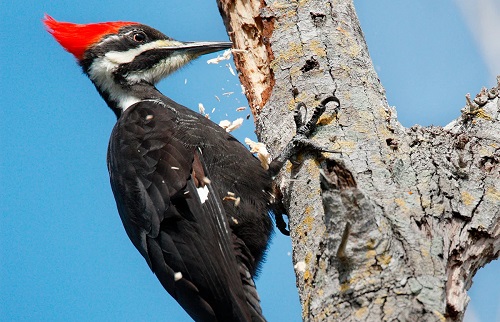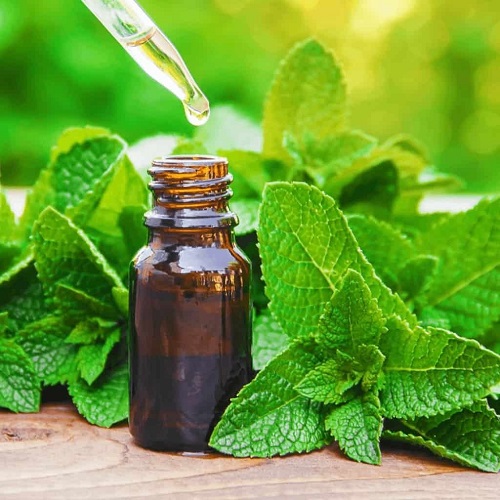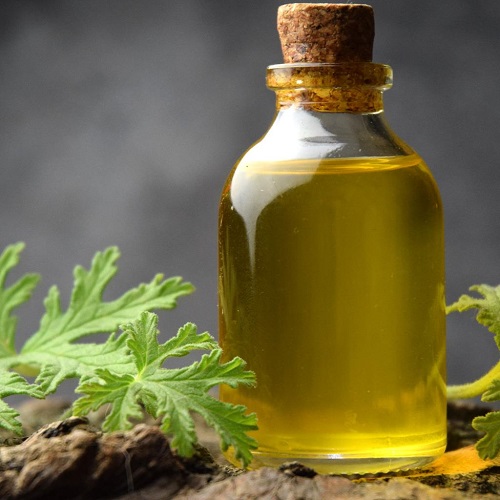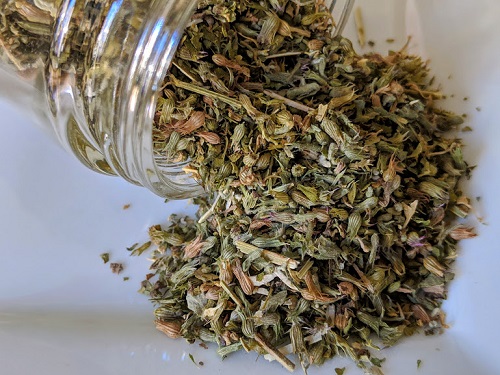Want to keep your home and garden peck-proof? Say goodbye to them using Smells That Repel Woodpecker!
If you’re tired of woodpeckers damaging your property, you might want to consider a natural and effective way to keep these birds at bay. In this guide, we’ll explore some of the most effective Smells That Repel Woodpecker providing you some organic solutions.
Are You Curious To Know About The Smell And Texture Of Castor Oil? Click Here!
Why Do Woodpeckers Peck?
Woodpeckers engage in pecking primarily for instinctual purposes, with several key motivations driving this behavior. Their foremost reason is to search for food; by pecking into tree bark, they uncover insects that form a major part of their diet. Additionally, pecking serves as a communication tool, with woodpeckers rhythmically drumming on wood or metal to mark their territory and attract mates. This behavior also aids in creating nesting sites, as they carve out holes in trees or wooden structures for raising their young ones.
Moreover, some species use pecking to store food, creating small holes to stash provisions for later. Each of these activities is vital for their survival and reproduction, making pecking an essential part of woodpecker behavior.
Smells That Repel Woodpecker
Due to this common habit of woodpeckers, they often seem to be a nuisance for home and garden owners, and looking for organic options such as certain smells is the best way to eep them at bay. Here are the most effective options:
1. Garlic Oil
Garlic oil contains allicin, a sulfur-containing compound that releases a strong odor. This scent is not typically found in their natural habitat, causing a sensory overload that encourages them to steer clear of the area.
How to Use: Mix garlic oil with water and spray it in areas troubled by woodpeckers. Reapply every few days for continuous protection.
You’ll See The Perfect Duo Magic Of Castor Oil And Garlic Here!
2. Peppermint Oil
The intense and penetrating scent of peppermint oil, especially the menthol component, is irritating to woodpeckers. This strong odor disrupts their sense of smell, making the environment unappealing for them.
How to Use: Dilute peppermint oil with water and spray in woodpecker-prone areas. Maintain effectiveness by reapplying regularly, especially after rainfall.
3. Vinegar
Woodpeckers find vinegar’s acidic and sharp smell harsh. This strong odor, differing greatly from their natural scents, acts as an effective deterrent.
How to Use: Soak rags in vinegar and place them in affected areas. Keep the rags moist with vinegar to ensure continuous deterrence.
4. Citrus Scents
Citrus fruits like lemons and oranges contain limonene, a compound responsible for their distinct citrusy smell. This fragrance is alien to woodpeckers’ natural habitats, causing them to avoid the area.
How to Use: Distribute fresh citrus peels, like lemon or orange, around your property. Regularly replace the peels to keep their scent potent.
5. Predator Urine
Predator urine contains various ammonia compounds and pheromones that signal danger to woodpeckers. These chemical cues instinctively alert them to the presence of predators, triggering a fear response.
How to Use: Apply predator or human urine around the edges of the woodpecker-prone area. Use cautiously to avoid attracting other wildlife.
Caution: This woodpecker repelling method may attract other wildlife. Plus this option might be uncomfortable for most people.
6. Citronella
Citronella oil is rich in compounds like citronellol and geraniol, which produce a strong, lemon-like scent. Its intense and unfamiliar aroma disrupts their comfort in the environment.
How to Use: Use citronella oil by diluting it with water and spraying it around areas where woodpeckers frequent. For sustained effectiveness, reapply the solution regularly, especially after rain.
7. Commercial Bird Repellents
These repellents often contain a mix of various synthetic compounds designed to mimic predator scents or produce strong, unnatural odors. These can include methyl anthranilate, a grape-scented compound that is aversive to birds.
How to Use: Adhere to the manufacturer’s instructions for application. Periodic reapplication is typically needed to maintain the repellent’s effect.
8. Catnip
Nepetalactone is the primary compound in catnip responsible for its potent smell. This scent is unusual and disorienting for woodpeckers, prompting them to avoid areas where it’s present.
How to Use: Plant catnip or spread dried catnip leaves in woodpecker-prone areas. Refresh the leaves or replant periodically to maintain the deterrent effect.
9. Cinnamon
Cinnamon owes its repelling properties to Cinnamaldehyde, a compound that gives cinnamon its spicy, sharp aroma. Its strong scent is vastly different from the natural odors woodpeckers are accustomed to.
How to Use: Sprinkle cinnamon powder or use a diluted cinnamon oil spray in the areas frequented by woodpeckers. Reapply this deterrent after any weather changes that might dilute its potency.
10. Onion
The key compound in onions that repels woodpeckers is Allicin, similar to garlic. The intensity of the scent is bothersome and unfamiliar, driving them away.
How to Use: Place fresh onion slices or bags filled with chopped onions near the affected areas. Replace these regularly to ensure the scent remains strong.
11. Rosemary
Rosemary emits a powerful herbal fragrance that woodpeckers find unappealing. This strong, distinct scent is not typically found in their natural environment.
How to Use: Grow rosemary plants near areas where woodpeckers are active, or use rosemary oil in a spray solution. Regular application is necessary for lasting repulsion.
12. Lavender
Linalool and Linalyl acetate are the primary compounds in lavender, contributing to its intense, aromatic floral scent. They are unaccustomed to such strong floral odors in their habitat.
How to Use: Plant lavender or apply lavender oil in areas frequented by woodpeckers. Ensure consistent reapplication to keep the scent fresh and effective.
13. Basil
Linalool, also found in basil, is responsible for its robust, aromatic essence. This scent is deterrent to woodpeckers due to its unfamiliarity in their natural environment.
How to Use: Plant basil in gardens or areas prone to woodpecker activity, or use basil oil sprays. Maintain the deterrent by applying it regularly.
14. Cayenne
Capsaicin is the compound in cayenne pepper that gives it its sharp and spicy aroma. This scent is a strong irritant to woodpeckers, causing discomfort and encouraging them to stay away.
How to Use: Create a spray mixture with cayenne pepper and water. Apply it to surfaces vulnerable to woodpecker damage, and reapply frequently, especially after rainfall.
15. Mothballs
Naphthalene or Paradichlorobenzene, the active compounds in mothballs, release a chemical odor that is toxic and repellent to woodpeckers. The strong, unnatural smell signals danger to the birds.
How to Use: Hang mothballs in mesh bags near problem areas. Be mindful of their placement, especially if pets or children are present.
Smells That Repel Woodpecker—Final Words
Using a variety of scents to deter woodpeckers is both an effective and eco-friendly solution. The strategy harnesses the fact that woodpeckers are highly sensitive to smell, turning this trait into a beneficial tool for homeowners.
By deploying natural aromas such as garlic oil, peppermint, and citrus, you can safely and non-toxically keep these birds at bay. Regular reapplication of these scents will ensure repelling of woodpeckers consistently.
Check Out One Of The Best Amazingly Smelling Essential Oils Here!
Frequently Asked Questions
1. Are Commercial Bird Repellents Safe for Pets and Children?
Most commercial bird repellents are safe, but it’s important to read the product label for any specific safety instructions, especially if you have pets or children.
2. Can I Use a Combination of Different Scents to Repel Woodpeckers?
Yes, using a combination of different scents can be more effective. It creates a varied barrier that is more likely to deter woodpeckers consistently.
3. How Effective Is Predator Urine in Repelling Woodpeckers?
Predator urine can be very effective but use it cautiously as it might attract other wildlife. It’s best used as part of a broader deterrent strategy.
4. Do Spicy Scents Like Cayenne and Chili Pepper Work Against Woodpeckers?
Yes, spicy scents can effectively repel woodpeckers. Create a spray with cayenne or chili pepper powder and water, and apply it to the affected areas.
5. Should I Consult a Professional for Persistent Woodpecker Problems?
If home remedies do not work, consulting a wildlife control professional can provide more targeted solutions and ensure that all measures are humane and legal.

